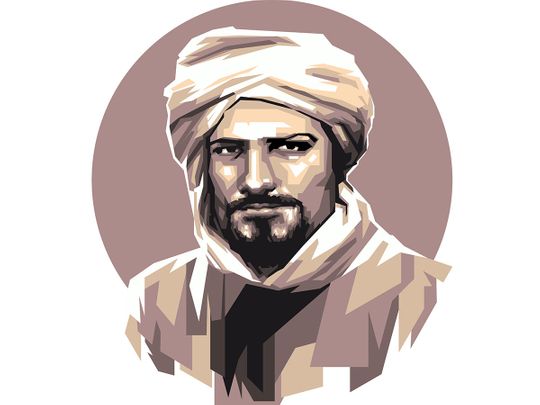
Today, when you embark on an epic journey, it probably involves less of a free-spirited leap into the unknown, and more of the systematic checks and queues of modern travel. But it wasn't that way for explorers in years past.
Click start to play the Weekend Crossword, and test your knowledge of globetrotters who discovered new lands and cultures.
In the fantasy adventure novel, The Lord of the Rings, by author J. R. R. Tolkein, a hobbit named Frodo recalls the words of his well-travelled uncle, Bilbo: “It's a dangerous business, Frodo, going out your door. You step onto the road, and if you don't keep your feet, there's no knowing where you might be swept off to.”
Perhaps explorers like the 14th century Moroccan scholar Ibn Battuta would have appreciated the truth in Bilbo’s words.
When he was 21 years old, Ibn Battuta set out on his first Hajj pilgrimage to Makkah. But his journey didn’t end there. According to National Geographic, over the next 30 years, his trip would span 40 countries – from north Africa to Egypt, the Middle East, east Africa, Anatolia, India, southeast and east Asia, and China.
In fact, Ibn Battuta has travelled more than any other explorer in pre-modern history. His journey totalled around 117,000km, easily surpassing the Venetian explorer Marco Polo who covered 24,000km, and Chinese mariner Zheng He, who managed 50,000km.
There were no Uber rides to Airbnbs for Ibn Battuta. He travelled on foot, by camel caravans, and by sea, often encountering dangerous situations as he fulfilled his wanderlust. According to History.com, he faced bandits and fell terribly ill when travelling east across north Africa. His illness was so severe, he had to tie himself to his camel’s saddle to avoid collapsing. And as he tried to travel from India to China, Ibn Battuta was kidnapped and robbed of everything but his pants. When he managed to arrive at the port of Calicut on the eve of his marine voyage, his ships blew out to sea in a storm and sank, killing many of those who were meant to accompany him on his journey.
But his voyage was not all bad. Ibn Battuta spent a whole year on the idyllic islands of the Maldives. Also, since he worked as an Islamic judge or scholar wherever he went, he often enjoyed gifts such as fine clothes and horses in Muslim-controlled lands.
Ibn Battuta’s three-decade wanderlust is recorded in his massive travelogue called Rihla (Journey), which he dictated from memory to a writer. The book serves as a guide to the Islamic world in the Middle Ages, with insight into geography, natural history, politics, religion and people from around the world.
Ibn Battuta’s first few sentences at the start of his book have a familiar ring to them. He states: “Swayed by an overmastering impulse within me, and a long-cherished desire to visit those glorious sanctuaries, I resolved to quit all my friends and tear myself away from my home…” Frodo and Bilbo would understand.
Which explorer inspires you to travel? Play the Weekend Crossword and let us know at games@gulfnews.com.





